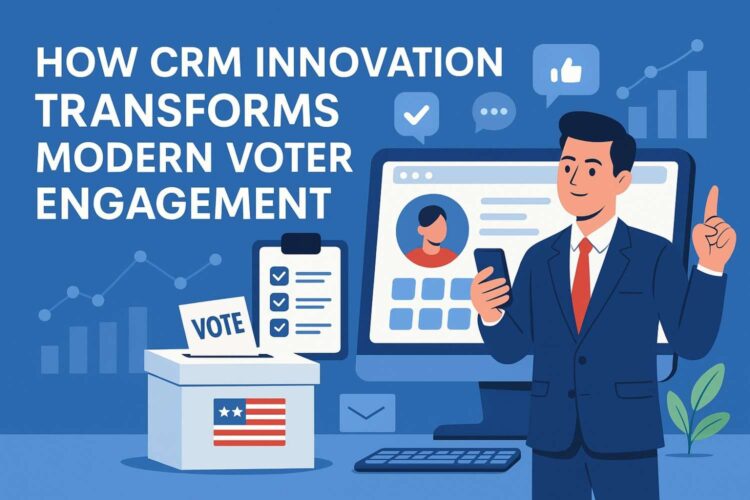Winning voter attention requires more than speeches and slogans. Campaigns that succeed understand voters, connect at the right time, and tailor messages that inspire trust. The difference between a campaign that fades and one that thrives often lies in data-driven communication. That is where customer relationship management, or CRM, reshapes political strategies. It gives campaigns the clarity to know who to reach, when to reach them, and how to convert interest into loyalty.
The right political campaign CRM can serve as the bridge between candidates and communities. It organizes supporter data, tracks outreach, and highlights patterns that reveal what motivates voter action. When used effectively, it turns scattered information into meaningful connections that drive momentum.
Personalization Builds Trust
Voters appreciate recognition. When a campaign addresses a person by name and references past interactions, it strengthens the emotional connection. CRM tools make such personalization easy. By analyzing past donations, event participation, and survey responses, campaigns can predict which issues matter most to each voter.
Personalized outreach works because it mirrors real conversations. It turns a broadcast into dialogue. Voters who feel seen and valued are more likely to stay engaged, volunteer, or advocate for a candidate. In essence, personalization transforms data into a human connection.

Real-Time Communication Changes the Game
Timing can define success. During campaigns, updates travel fast, policy shifts, event changes, or new endorsements. A modern CRM platform enables teams to deliver information instantly through SMS, email, or social channels. That quick response builds credibility and keeps supporters informed.
When volunteers or staff members access real-time dashboards, they can make immediate decisions. They can follow up with leads, adjust messaging, and respond to public sentiment almost instantly. This agility keeps the campaign one step ahead of competitors who rely on outdated methods.
Integrating Social Insights
Social platforms shape opinions and trends every day. A strong CRM system can integrate social media insights to monitor conversations and identify influential voices. These insights reveal what voters discuss, share, and support.

Benefits of social integration
- Tracks sentiment shifts after debates or announcements.
- Identifies top-performing messages for amplification.
- Detects potential issues before they escalate.
Social insights help campaigns remain adaptive and responsive. They make sure that strategies reflect the mood of the electorate rather than assumptions.
Volunteer Coordination Made Simple
Volunteers are the heart of every campaign. Coordinating them requires structure. CRM tools simplify this process by scheduling events, assigning territories, and tracking attendance. Each volunteer’s contribution gets recorded and acknowledged, creating motivation and accountability.
A clear view of volunteer performance also improves management efficiency. Leaders can identify who excels at outreach or fundraising and assign tasks that fit those strengths. Organized coordination ensures that every supporter’s effort contributes effectively toward the campaign goal.
Analytics for Smarter Decisions
Data becomes valuable when interpreted correctly. Analytical tools within CRM platforms highlight trends that human observation might miss. They measure campaign reach, donor behavior, and engagement levels.

Key metrics to watch
- Voter turnout rates by region.
- Response rates to different communication channels.
- Donor conversion and retention statistics.
Tracking these metrics, campaign managers can refine strategies, improve content, and allocate resources where they yield the highest return. Smart analysis turns guesswork into guided action.
Mastering voter engagement requires more than enthusiasm; it demands strategic connection. A political campaign CRM provides structure, insight, and precision to every stage of the campaign. Focusing on data accuracy, personalization, and real-time communication, political leaders can create authentic relationships with voters. When technology aligns with purpose, every message counts and every supporter matters. Through smart use of CRM, engagement becomes not just effective, but enduring.




